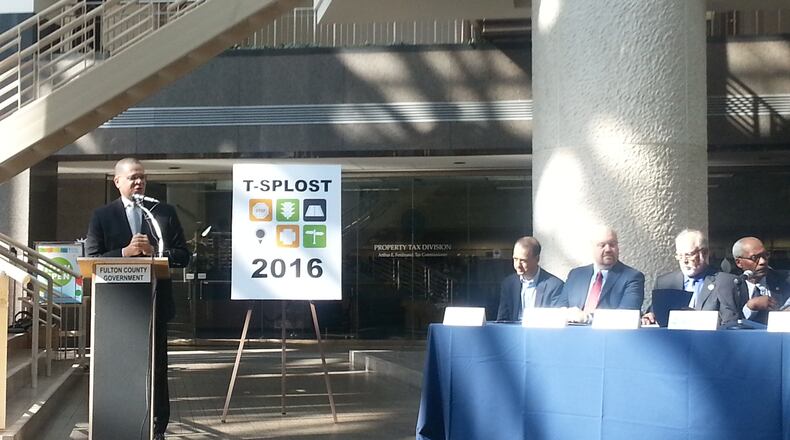In Sandy Springs, city officials posted banners advertising the upcoming transportation tax referendum on light posts.
In Roswell, there is a webpage. And up the road in Johns Creek, workers handed out information at public events and posted twice a day on Facebook and Nextdoor.
Fulton County has more than a dozen cities, and each has worked to educate voters about the proposed transportation tax, known as a TSPLOST. The five-year, three-quarter of a penny sales tax would pay for various improvements — with each city choosing its own projects — across the county.
Still, public officials are limited in how far they can go.
“We walk a fine line between advocacy and education,” said Sharon Kraun, the communications director for Sandy Springs. “We’re making sure the community can find information on their own.”
Elected officials can speak out in favor of or against the proposed tax, and some have. But city employees can work only to inform voters. So that’s what they’re doing, with websites and videos, fliers and town hall meetings.
“It’s very grassroots work,” Jessica Corbitt, a spokeswoman with the county, has said. “We wanted the cities to take the lead to reflect the process as a whole. The whole philosophy has been to maintain local control.”
City workers have handed out information at homecomings, attended Kiwanis and Rotary club meetings, placed TSPLOST details in newsletters and sent emails to residents.
“The main thing is that we make sure everyone is knowledgeable so the lines are clear when they go to the polls,” East Point spokeswoman Renita Shelton has said.
The city of Roswell developed an interactive map that showed the projects the tax would pay for in that area.
“We’re hoping it helps people decide whether they want to vote for it or not,” community relations manager Julie Brechbill said. “I think we’ve done a comprehensive job of educating the public.”
Alpharetta has spent a lot of time and effort telling people where the proposed tax will be on the long ballot, in the hopes that they will not leave the ballot box before they get to it, said James Drinkard, the assistant city administrator.
Clarity is key, he said. Voters need to know this transportation tax is not the same as the two being voted on in Atlanta, one of which would go to MARTA funding. Only those in the city limits of Atlanta cast ballots in those referendums.
“In North Fulton, we definitely have folks who don’t want to see MARTA expansion,” Drinkard said. “We were concerned there may be some confusion there.”
So North Fulton cities have been working together to make sure they use the same terminology, he said. The cities have all been sharing tips and the TSPLOST logo, which was developed by Roswell.
“We all talked,” Kraun said. “If someone had a good idea, we were allowed to rip it off.”
In Milton, communications manager Shannon Ferguson said residents responded well to a week of social media posts with frequently asked questions about the tax proposal. The questions were compiled from the emails sent to the city, as well as questions residents asked at two town hall meetings.
“Voter education, we take it very seriously,” Ferguson said. “The rest is up to them.”
About the Author
Keep Reading
The Latest
Featured


